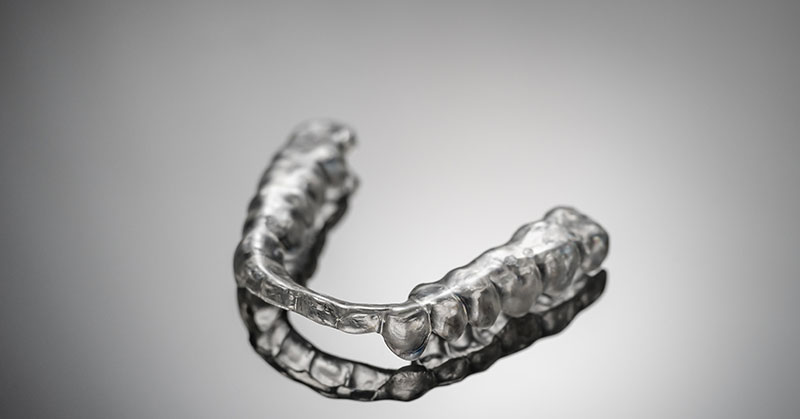Mouthguards are nothing new in dentistry. In fact, dentists have been recommending mouthguards for their patients since the 1950s. While originally advised for athletes and sports enthusiasts, modern-day mouthguards do more than simply protect a person’s teeth while engaging in sport. What follows are descriptions of different types of mouthguards available and the benefits they provide to dental patients.
Types of Mouthguards
Your dentist may recommend that you wear a mouthguard for a variety of reasons. Here are the different types available today and how you might benefit from each one.
- Sports guards – Mouthguards were originally designed to protect people from breaking teeth during physical contact sports. This type of mouthguard is still actively used by everyone from professional athletes to weekend sports enthusiasts. A sports guard provides protection not only for the wearer’s teeth; they also guard against soft tissue damage to the cheeks and gums, as well as providing protection for the jaw and other portions of the face. Generic, one-size-fits-all sports guards are available in many sporting goods stores, but the most effective (i.e., most protective) are mouthguards that are custom-made by your dentist.
- Night guards – Dentists may recommend a night guard for patients who grind their teeth at night. Teeth grinding, also known as “bruxism,” can badly damage teeth and cause pain and stiffness in the jaw as well. But that’s not all. People with bruxism often experience earaches, headaches, swollen/receding gums, poor sleep quality and – if left untreated – eventually loose teeth. Night guards are designed to protect the teeth, and some also restrict the movement of the patient’s lower jaw. This type of mouthguard should be custom-made by the dentist for each patient.
- Mandibular advancement device (MAD) – These oral devices are designed for people with sleep apnea, a sleep disorder that results in loud snoring and disruptions in breathing. Although this type of mouthguard may look similar to other types, MADs are specifically designed to help keep the wearers’ airways open while they sleep. They work by keeping the tongue and jaw in the proper position, allowing the person to sleep soundly while reducing or eliminating loud snoring and disruptions in breathing patterns.
It’s important to remember that the most effective mouthguards are those that are custom-made by your dentist. These oral appliances will not only be more comfortable to wear; they will also provide you with the protection and/or jaw and tongue placement you need to address your issue. For more information about mouthguards and how you might benefit from wearing one, talk to your dentist.


